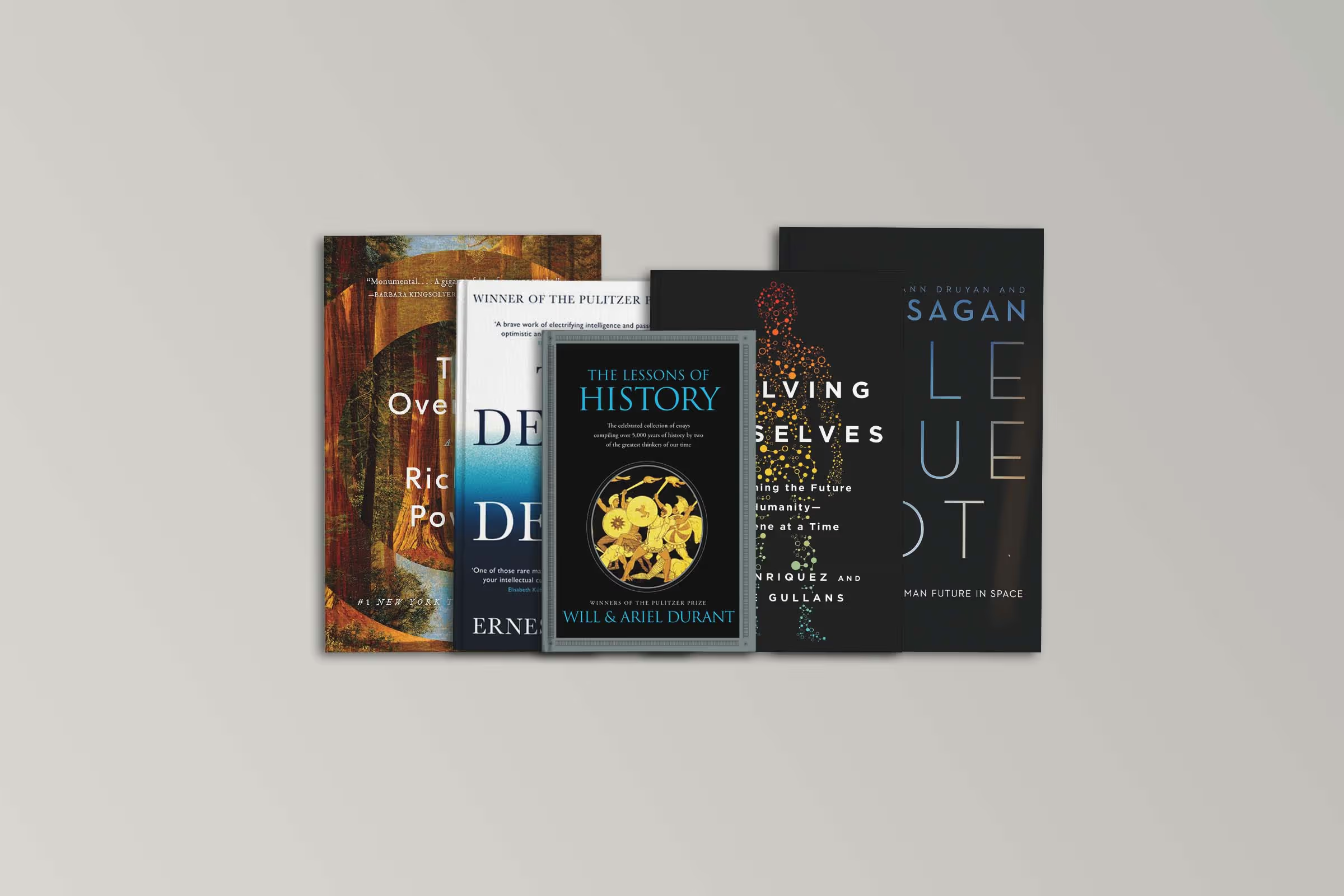
If a person is interesting enough, newsworthy and has a life others can learn from, then they'll likely end up as the subject of a biography.
They might work with someone on an official biography, or write their own autobiography. They might be the subject of an unofficial biography, charting their life through reports, stories and other articles. However their biography is assembled, they give us a fascinating glimpse into the lives of people we otherwise wouldn't get to read about.
Looking to get a first-person view inside of history’s most interesting people? Biographies might be just what you're looking for. From first-person accounts of history-changing moments to endearing, intimate details of someone's life, biographies are the best way to get the facts straight from the horse's mouth.
Here’s a list that should get you started on finding the best biographies written in the last couple of years.
Home Work: A Memoir of My Hollywood Years - Julie Andrews
In this book co-written with her daughter Emma Hamilton, Andrews shares the story of her start in Hollywood, which starts where her first book “Home” left off after telling her difficult childhood and the beginning of her career as a singer and performer. Take a look into Andrews’s life when she starred in “Mary Poppins” and “The Sound of Music”, as she became a new mother, and how she juggled life as a successful actress. And if her books aren’t enough, Andrews also has a podcast - Julie’s Library - where you can listen to her beautiful enunciation all day long.
The Answer Is…: Reflections on My Life - Alex Trebek
A lot of people today don’t think of game shows the way their parents’ generations did. We’ve seen Who Wants To Be A Millionaire & Deal Or No Deal as major TV hits, but more than that, we’ve gotten used to playing along. Those same games have been adapted as apps. In fact, the Gala Casino gaming platform online has spearheaded an effort to blend game show concepts with casino concepts, producing titles such as Who Wants To Be A Millionaire Live Roulette, which we’re seeing more and more of now across a range of sites. Back in the day, however, the foundational game shows were cultural touchstones that brought people together, and hosts were like family. This book gets to that aspect of things through the eyes of one of the most iconic game show hosts ever.
His Truth Is Marching On: John Lewis and the Power of Hope - Jon Meacham
Today, we view activism often as little more than signing an online petition or retweeting a thread. It’s easy to engage in what we call “slacktivism” - supporting social or political causes via non-physical means such as social media. It’s viewed mainly as a low-effort type of activism. This book shines a light on the fact that in Lewis’s day, activism was a physical act as well as a potential sacrifice. Discrimination due to race, gender, and sexual orientation was (and still is) rampant, as TIME reports. Lewis learned that nonviolence was an option, even during a time when violence seemed to be the answer to everything. Meacham uses Lewis’s past experience and interviews to articulate exactly what activism was in the 1950s for the black community, and how important every nonviolent protest was - the importance of which is still just as clear today as it was 70 years ago.
The Doctors Blackwell: How Two Pioneering Sisters Brought Medicine to Women and Women to Medicine - Janice P. Nimura
Both Elizabeth Blackwell and her younger sister Emily became doctors when the world wasn’t ready for women to study anything, much less medicine. This book dives into the sisters’ journey of trial and trumph as they founded the New York Infirmary for Indigent Women and Children - the first hospital staffed entirely by women - and 1850s America. It’s a great read, especially since female doctors like Dr. Ravina Balchandani are still facing challenges in the medical field simply due to being women.
The Splendid and the Vile: A Saga of Churchill, Family, and Defiance During the Blitz - Erik Larson
Here’s a clear view of London’s most challenging year during World War II - complete with Winston Churchill’s unrelenting task to convince Franklin Roosevelt to join England and bring peace. Larson paints a picture of the war and its toll on Winston, his family, and the rest of England while avoiding the fiction-like prose and dependence on political terms that one would expect from a historical biography based on wartime.
I have nothing to offer but blood, toil, tears and sweat.
On Winston Churchill's first day as prime minister, Adolf Hitler invaded Holland and Belgium. Poland and Czechoslovakia had already fallen, and the Dunkirk evacuation was just two weeks away. For the next twelve months, Hitler would wage a relentless bombing campaign, killing 45,000 Britons. It was up to Churchill to hold his country together and persuade President Franklin Roosevelt that Britain was a worthy ally--and willing to fight to the end.
In The Splendid and the Vile, Erik Larson shows how Churchill taught the British people "the art of being fearless." It is a story of political brinkmanship, but it's also an intimate domestic drama, set against the backdrop of Churchill's prime-ministerial country home, Chequers; his wartime retreat, Ditchley, where he and his entourage go when the moon is brightest and the bombing threat is highest; and of course 10 Downing Street in London. Drawing on diaries, original archival documents, and once-secret intelligence reports--some released only recently--Larson provides a new lens on London's darkest year through the day-to-day experience of Churchill and his family: his wife, Clementine; their youngest daughter, Mary, who chafes against her parents' wartime protectiveness; their son, Randolph, and his beautiful, unhappy wife, Pamela; Pamela's illicit lover, a dashing American emissary; and the advisers in Churchill's "Secret Circle," to whom he turns in the hardest moments.








.avif)
.avif)

.webp)








































